According to The National Center for Women & Information Technology, 56% of women in tech leave at the mid-level point — twice the quit rate for men. Losing half of the industry’s future leaders is obviously bad news for companies, but equally important is the impression it gives potential future women leaders. With important role models leaving at such high rates, a gap in the tech industry crops the presence of diverse thought and experience, which is has been shown to enhance teams’ creative thinking and problem-solving abilities.
While the 44% that remain in positions of leadership may be at the helm of their teams, they are not alone in guiding their peers. Each team member is a valuable component of a larger department and organization, and ensuring their feedback is welcomed and utilized builds stronger and healthier teams.
We met with six women that are leaders in their organizations to learn about their management styles, and the qualities they’ve built to best support their teams.
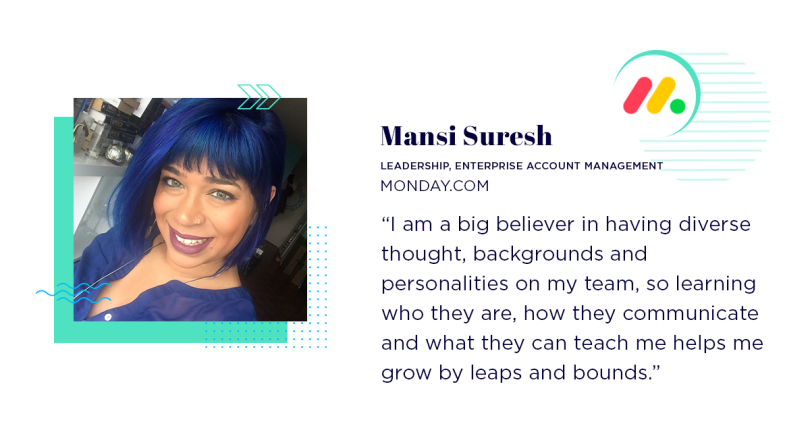
Lessons in lifelong learning
“Keep learning. Bar none, this one lesson has helped me understand my team, my peers and myself much better. It allows me to understand perspective, intent, context and impact. I am a big believer in having diverse thought, backgrounds and personalities on my team, so learning who they are, how they communicate and what they can teach me helps me grow by leaps and bounds. And they are ALWAYS teaching me!”
Mansi Suresh is a sales manager for monday.com, a work operating system that keeps team members aligned on company projects.
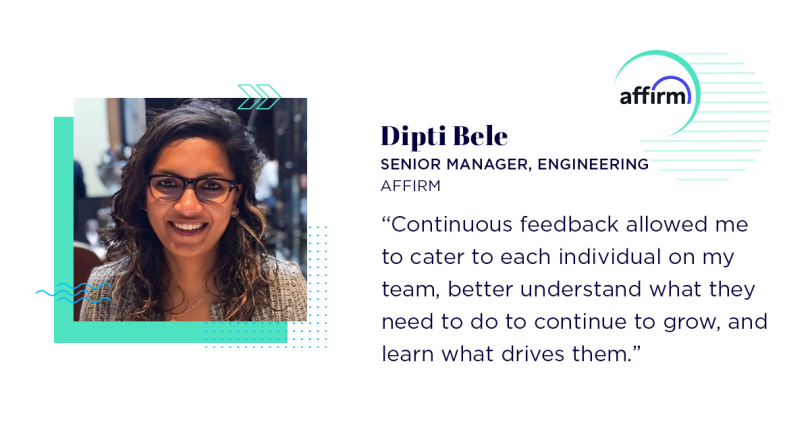
A continuous approach
“People are hungry for feedback, whether positive or constructive. Usually, companies have a set annual or semi-annual feedback and development process, which works, but that doesn’t mean feedback should only be given once or twice a year. Continuous feedback allowed me to cater to each individual on my team, better understand what they need to do to continue to grow, and learn what drives them.”
“Of course, feedback goes both ways — this process helped me be a better manager by understanding their skills, and to adjust my approach and management style to help them succeed in their goals and create a healthy team culture. Setting a regular cadence for feedback and development also enabled me to be an active listener, to then provide coaching and mentorship by building trusting relationships with them where they feel empowered to bring their voice to the table.”
Dipti Bele is Senior Manager of Engineering at Affirm, a platform offering payment options to help people meet their spending goals.
Mutual Accountability
One important lesson I've learned in my time as a people manager is that you're never done learning how to be a better people manager. In the same way you expect your team members to continue to grow and develop, you need to hold yourself accountable to the same level of growth and development. Stay open to feedback and ask for it often. Creating a space where feedback is shared back and forth as the norm goes a long way in ensuring the success of your team.
In the same way you expect your team members to continue to grow and develop, you need to hold yourself accountable to the same level of growth and development.”
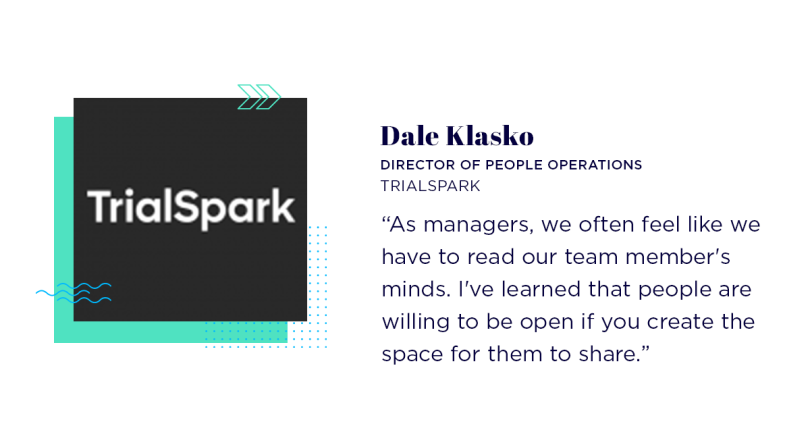
Keeping communication open
“When I start managing a new team member, I spend time asking them questions to understand their preferences, and share my own. Topics typically include giving and receiving feedback, recognition, communication channels, asking for help and navigating conflict. This not only paves the way for open dialogue from day one, but also models the behavior you want to see from your direct reports. As managers, we often feel like we have to read the minds of our team. I’ve learned that people are willing to be open if you create the space for them to share.”
Dale Klasko is Director of People Operations at Trialspark, a software and technology company powering end-to-end clinical trials.
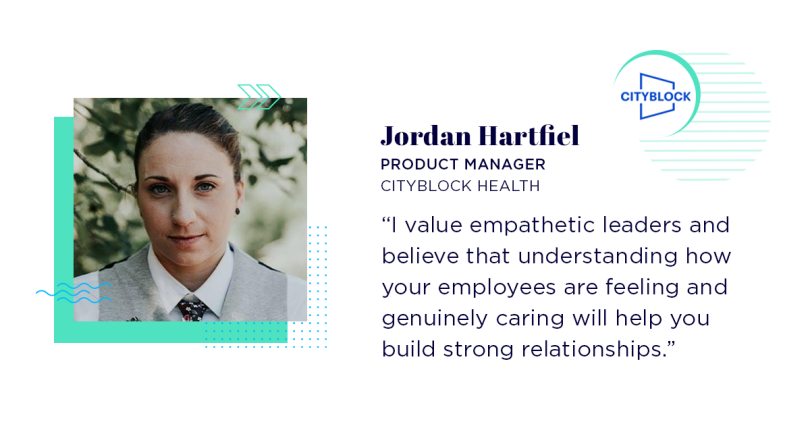
Empathy is a strength
“Being empathetic to your employees is one of the most important lessons I’ve learned as a people manager. I value empathetic leaders and believe that understanding how your employees are feeling and genuinely caring about your employees will help you build strong relationships and be a great leader.”
Jordan Hartfiel is Product Manager of Data Management and Governance for Cityblock Health, a healthcare platform that partners with local providers and community-based organizations to provide personalized care for their members.
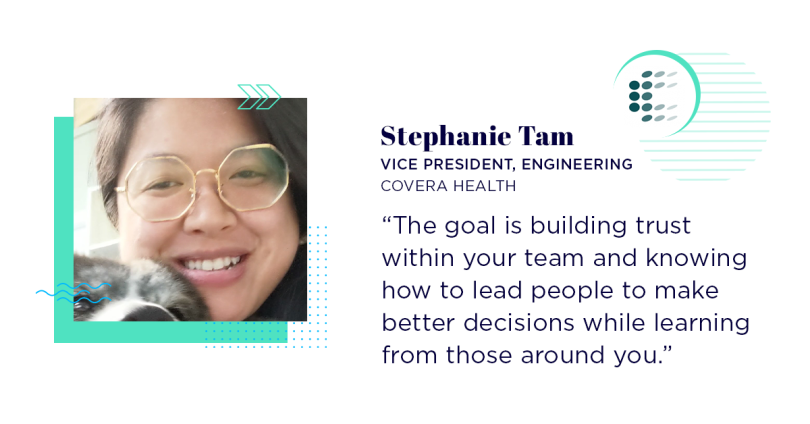
Finding balance and building trust
“Even if your title is a manager, it’s important to remember your primary job is to be a leader. You are responsible for leading the team through change (technical, cultural, business, and organizational). You don’t need to know everything and manage every single detail! The goal is building trust within your team and knowing how to lead people to make better decisions while learning from those around you. You also have to balance hard skills and soft skills on the team you’re growing; the team is equally important to your success than any one skill that you can have as a leader. Yes, you will need people who know how to code and know how to evaluate that. Equally important is being able to find people who can communicate, motivate and focus.”
“Lastly, you’re never alone. The lessons you learn will be supported by your network and the team around you. I would have never gotten to where I am without the insights of other leaders before me.”
Stephanie Tam is Vice President of Engineering at Covera Health, a healthtech company leveraging data science and AI to help patience receive accurate diagnoses.






